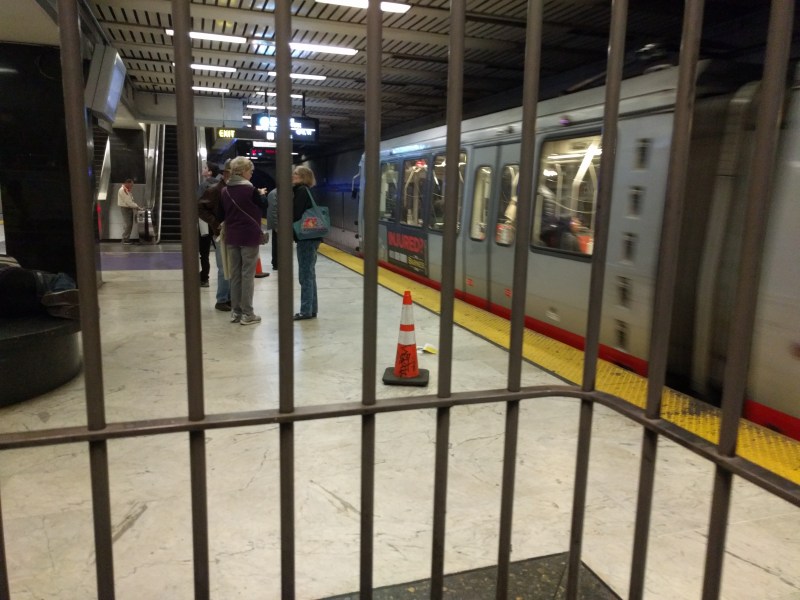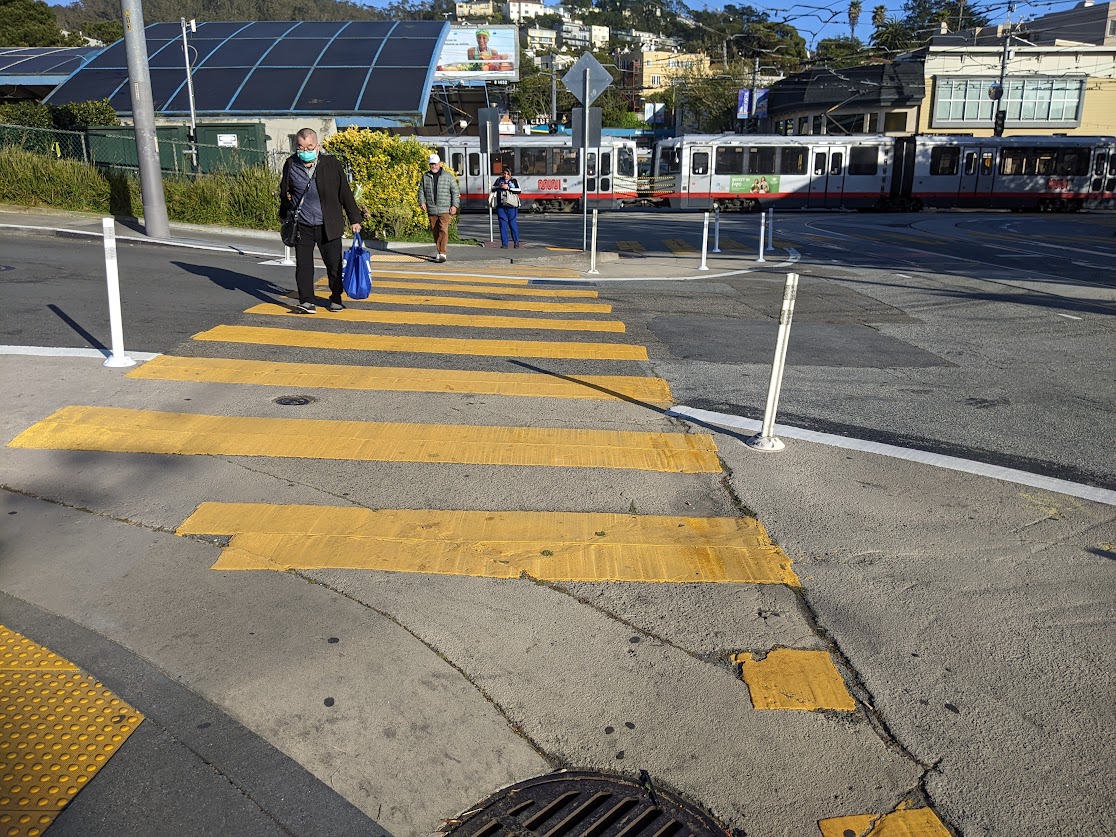Specter of a BART Strike Raises Important Questions for Bay Area
5:21 PM PDT on August 17, 2009
 Flickr photo: b3nda
Flickr photo: b3ndaThank goodness the BART strike seems to be averted. I'd wager that you thought a little harder about your commute today, no matter which mode you used.
One of the positives to come of the high drama around the BART strike was the public dialogue it engendered among riders, the media, transit geeks, and transit operators. How were those hundreds of thousands of people going to find a way to work, particularly given that more than 60 percent of BART's passengers are suburban commuters who use the system to get to and from work, most of them in San Francisco, and there are few other options to get across the Bay from the east?
The number of stories on the strike were legion, though most of them covered little more than the back and forth of the negotiations and included the man-on-the-street interview about how greedy the union was. One thing that wasn't covered, but which was important to
BART, was the concern that a strike would compel many people away from
the system to their cars or other means of transport, and the fear
those riders might not have readily come back.
"People can
form new habits fast," said BART Director Tom Radulovich. "Our
ridership is already declining, so even a brief work stoppage of a few
days could have accelerated that decline, putting the whole district,
labor and management, into a worse position financially."
Radulovich
also wished the Metropolitan Transportation Commission (MTC), or another entity that could coordinate the many transit
operators, had a reserve of buses to use for these types of situations, so that the options weren't between a strike and horrible traffic. If there were more buses that could be operated while BART was down, then the impetus for a transit-only lane across the Bay Bridge would have been greater.
The MTC argued that it wasn't in the position to stock a reserve fleet. "It would cost a great deal of money to have a huge reserve capacity and
maintain that huge capacity and the public is not going to put up with
that," said MTC spokesperson Randy Rentschler. "They are going to put up with the temporary inconvenience before that."
Although there are many transit operators spanning various modes, like ferries and buses, there is no immediately sufficient replacement for BART's service. Because of spacial efficiency, a couple hundred thousand drivers compelled to go underground (think MacArthur Maze fire or Loma Prieta) fit a lot better on BART than a couple hundred thousand riders coming above ground to find a seat in crowded buses and ferries, to carpool, or to sit alone in a car in epic traffic.
"One thing about the Bay Area is that we have very linear travel patterns because of our geography," said Rentschler. Add to that the "confusion of having many operators, and [the Bay Area] suffers from the sense of not being cohesive."
The MTC had been planning contingencies for a BART strike for months, but a labor action, said Renstchler, unlike a natural disaster or a large fire, doesn't command the same kind of response from the other transit agencies. "My agency doesn't have the power to reorder the priorities when these things happen to upset regular service. When you have an earthquake, you can say we have this problem that people understand. When you have a strike, that isn't the case."
One of the priorities Rentschler referred to is the very nature of transit operators with county-wide constituencies: operators do run more frequent service on the most-used lines, but they also consider their geographic base, even if that means far-flung buses might run at less-than-full capacity for segments of service. MTA's farebox recovery hovers around 20 percent, AC Transit's recovery is below that, and VTA's is less still.
With so little of each agency's money coming from the farebox and so much of it coming from taxes, there isn't a direct incentive to cut redundancy for efficiency, except when the overall budgetary picture is as bleak as it is now. Even then, without a mechanism for making smarter cuts, like the MTA's Transit Effectiveness Project, there is no guarantee that efficiency will be improved by shrinking funds.
"There is a societal obsession with efficiency," added Rentschler. "But efficiency and redundancy don't always go hand in hand."
Stay in touch
Sign up for our free newsletter
More from Streetsblog San Francisco
Commentary: Make Bay Area Transit Seamless as Condition of New Funding
SFMTA Starts West Portal Outreach
Agency presents plans to block traffic from crossing in front of the train station




